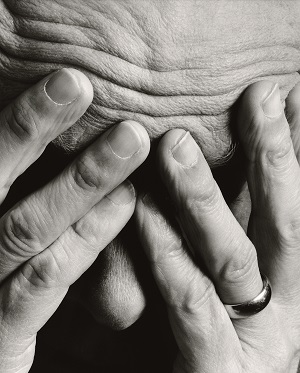Baby Boomers And Addiction – Part 2
Continued from Baby Boomers and Addiction – Part 1
There may be nothing specific to baby boomers that puts them at a higher risk of addiction, but their numbers will challenge the system. In order to adequately meet the need, new treatment approaches are being developed. The New York Times articles “Advice on Addiction in Boomers” Part 1 and Part 2, answer readers’ questions on the issue of addiction in this demographic.
Dangers Of Senior-Related Addiction
People in this age group will experience the greatest risk for alcohol-related health conditions such as heart disease, kidney failure, and liver disease. They also face the risk of falls and alcohol-related injuries that are made more severe by age.
Boomer-Based Approaches To Treatment
 While people are people and addicts are addicts, the Baby Boomers have always been, to some degree, their own animal. This has inspired new approaches to treatment and recovery designed to take characteristics of this population into consideration in developing more effective approaches.
While people are people and addicts are addicts, the Baby Boomers have always been, to some degree, their own animal. This has inspired new approaches to treatment and recovery designed to take characteristics of this population into consideration in developing more effective approaches.
Dollars and energy naturally go to preventing drinking and educating about alcohol related dangers in the teenage and college population, but statistically, they are not the problem. Older adults often fly under the radar with their problem alcohol use. They assume, by virtue of being adults, that they have their drinking under control. They drink more covertly, it is accepted in their social circles or they isolate and are harder to keep track of.
The question naturally arises: what is the likelihood of recovery for individuals in this demographic? Is it possible to reform after so many years of consistent heavy use or abuse? Is it possible to ‘teach an old dog new tricks?’
According To Dr. Krantz:
“The longer an individual uses a substance, the more changes there are to the chemistry and the neuro-pathways in the brain. The brain essentially becomes re-wired as a result of substance use. In recovery, with abstinence, those pathways can begin to heal, regardless of how long a person has been addicted. Despite the healing of the brain, the disease is forever imprinted, which is why recovery needs to be a lifelong process.”
Concerns Of Adult Children
Boomer alcoholics are raising levels of concern among their adult children—those old enough to recognize a drinking problem and motivated to help their parents find recovery.
Often it is the adult children of substance abusers who are questioning and confronting the disturbing habits and seeking out treatment information for their parents. Thus information and support directed at children on how to help or deal their addict parents will also be needed in coming years.
Societal Impact Of Treating Aging Addicts
The primary concern is increased health care costs as a result of the need to treat a large group of addicts with expensive residential recovery programs. While the past years have seen a decrease in binge drinking and alcoholic patterns in younger generations such as the Millennials, there has been a marked rise in the boomer-aged adults that have been admitted to the hospital for binge drinking, or who have needed medical treatment for drinking related conditions and injuries. Alcoholism also has the potential to exacerbate other pre-existing health conditions thus requiring a higher level of medical care and prescription drug use.
What Can Adult Children Do To Help Addicted Seniors?
Adult children can begin by becoming aware of what constitutes alcohol abuse. According to the piece in The New York Times:
“Several readers asked how to determine if a loved one has an issue with alcohol. The Centers for Disease Control and Prevention defines heavy drinking, or alcohol abuse, as ‘a pattern of drinking that results in harm to one’s health, interpersonal relationships or ability to work.’ Alcohol dependence, also known as alcohol addiction or alcoholism, is a chronic disease with symptoms including ‘continued use despite repeated physical, psychological or interpersonal problems.’
Some other important questions to ask are: Why is he drinking? Is it a coping mechanism? Is it about more than just liking the taste of alcohol? Is he drinking to relax? Is he drinking more than intended? Can he stop at any time and stay stopped?”
Warning Signs Of Substance Abuse
The article provided a general list of red flags to look for when questioning one’s own drinking problem or that of another.
These are some signs and symptoms that often manifest in boomers suffering from substance abuse or addiction issues:
- Drinking begins to interfere with relationships
- Decision making becomes more difficult
- Dementia or falling are more prevalent
- Increased tolerance
- More health complaints
- Chronic pain (it is important to seek treatment somewhere that specifically addresses this issue)
- Mood swings and emotional distancing
- Behavior that is out of the ordinary (for example, someone who plays golf all the time has progressive isolation and begins to give it up)**
If an addict is committed to practicing an addiction and refuses to seek help, there is often little that spouses, children, and/or grandchildren can do to make recovery a reality. However, all attempts and possible solutions should be exhausted. The coming years promise to bring new pathways and solutions in treatment and recovery with the aim of providing hope to baby boomers who suffer from addiction.
**Credit: List taken from The New York Times article “Addiction in Boomers.”



